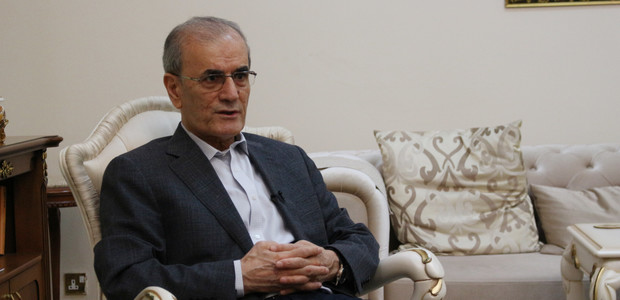This article was originally published by Niqash. Any opinions expressed are those of the author, and do not necessarily reflect the views of Iraq Business News.
Kirkuk’s Kurdish Governor: If Baghdad Blockades Us, ‘We Will Manage’
In an interview, the controversial governor of Kirkuk, Najmuddin Karim, talks about Baghdad’s attempts to fire him, military tensions and what happens if Baghdad stops sending money.
On September 14, the Iraqi parliament voted to dismiss the governor of Kirkuk from his post. The decision came after the governor, Najmuddin Karim, said that the Kirkuk area would also take part in the Kurdish referendum on independence held this week, on Monday.
The Kurdish minority in Iraq want their region to secede from the rest of Iraq and to begin to start a new nation; they already have their own government, military, and borders.
The decision on Karim’s position was made in the Iraqi parliament even though Kurdish MPs boycotted the vote. Karim rejected the dismissal as did the political party he belongs to, the Patriotic Union of Kurdistan, or PUK, and the Iraqi Kurdish government, which controls the semi-autonomous northern region.
The Kirkuk provincial council also supported the governor. However Arab and Turkmen members of the council who represent a significant proportion of Kirkuk’s population boycotted the session.
Kirkuk is one of Iraq’s most controversial “disputed areas” – that is, an area that the Iraqi government says belongs to Iraq but which the Kurdish believe should be part of their region. Although the Iraqi Kurdish military control the district, the population includes significant numbers of Arabs and Turkmen too, and this is why the city is often referred to as a potential flashpoint for ethnic conflict.
Karim spoke to NIQASH about the Kurdish referendum on independence as well as his dismissal and its ramifications for his authority in Kirkuk in the future.
NIQASH: There were a number of different options presented to the Kurdish leadership along with requests to postpone the referendum, but none of them seemed to be acceptable. Why?
Najmuddin Karim: The alternative proposals were not concrete. When the Iraqi prime minister spoke about problems, he was talking about amending the Constitution, which isn’t possible. We would only have agreed to postpone the referendum on condition that a date for Kurdish independence was set. There is no doubt that Kirkuk has a Kurdish identity and that its fate is entwined with that of the Kurdish region.

